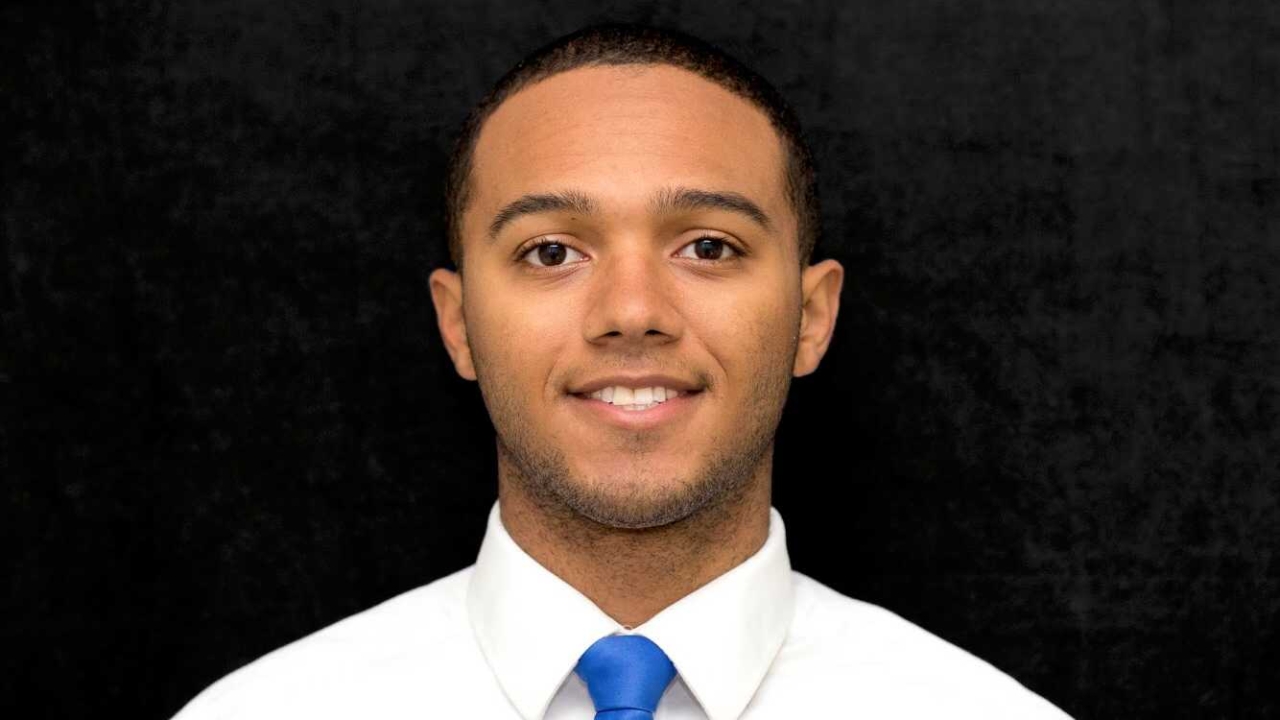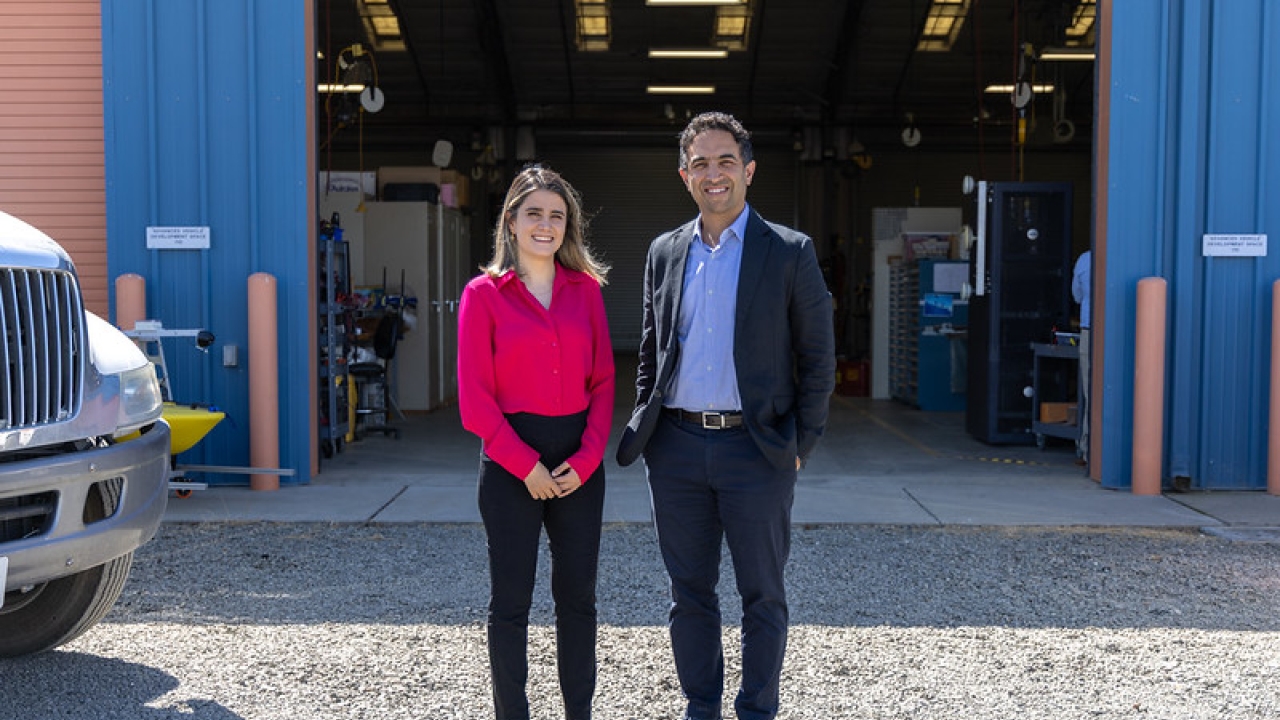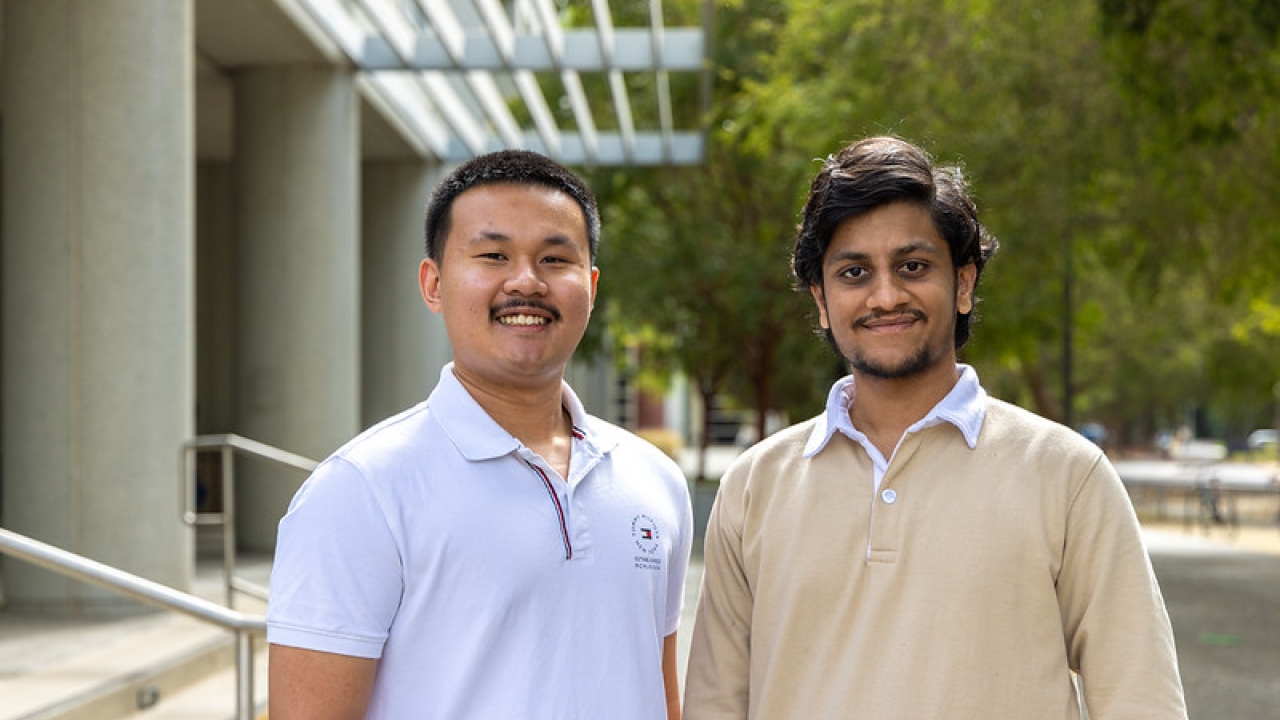
Alumni Spotlight: Christopher Pribilo
This spotlight is part of our 2022 Black Futures Month feature.
Christopher Pribilo ’20, aerospace engineering, knew he wanted to study aviation from a young age. His grandfather was a pilot, and Chris was always fascinated by the controls and buttons in his small Cessna plane. Following an internship at United Airlines, Chris got a job at Boeing, where he currently works as a multi-discipline engineer doing stress analysis and service engineering for the 737 Max. This is a 24/7 job at a multi-generational, multicultural organization with customers and colleagues all over the world—and he loves it!
When Chris came to UC Davis from San Diego, he joined the Special Transitional Enrichment Program (STEP) and the Leadership in Engineering Advancement, Diversity and Retention (LEADR) program. STEP and LEADR led him to utilize on-campus tutoring, join the Black Engineers Association and establish a network of peer support. He was active in the National Society of Black Engineers (NSBE) on a regional and national level, even chairing a regional conference at UC Davis. NSBE showcased excellence in Black engineering and provided a sense of community to connect with Black engineers across the country, many connections he maintains today. He joined a similar group at Boeing: the Boeing Black Enterprise Association (BBEA).
When he is not working, Chris spends time exploring Southern California on his new motorcycle. He is also taking graduate structural analysis classes with Boeing’s return-to-school program support. Another benefit at Boeing he plans to take advantage of? A pilot’s license. With Boeing’s support, Chris’s engineering journey will come full circle and he will become a pilot, just like his grandpa.
In reflecting on Black Futures Month, Chris explains: “It is an important opportunity to celebrate our history, our culture, the contributions that Black engineers have brought to society and campus. Even though the Black community is small in Davis, we have a large impact from our student body to important Black professors and administrators who are making our campus better. It’s important to educate our peers to let them know what we’ve had to endure—these are not excuses to fall behind, but motivation to make the future better for the Black community and everyone.”




